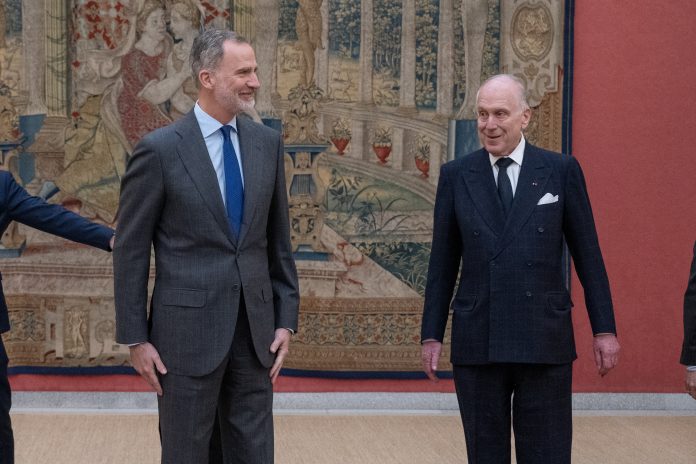The World Jewish Congress on Tuesday issued a critical report outlining European governments’ progress in developing action plans to tackle antisemitism. The report was shared ahead of meetings in Madrid with the King of Spain His Majesty Felipe VI and the country’s Foreign Ministry.
“We have seen too many times throughout history that people will come together, say all the right things, make the right commitments, but fall short on the follow-through,” said WJC President Ronald S. Lauder. “The truly hard work is the actual implementation of good ideas.”
The report tracks initiatives that emerged from Malmö International Forum on Holocaust Remembrance and Combating Antisemitism in October 2021, when nations focused on concrete steps to counter antisemitism and other forms of hatred and worked to advance Holocaust education and remembrance.
Strikingly, leaders from 35% of the Jewish communities that took part in the report said their governments had established an adequate legislative framework to prosecute antisemitic hate-speech and crimes. Yet just 22% said pledges made in Malmö were relevant for their actual needs, while 16% claimed that the pledges had been completely implemented.
At the gathering Tuesday, members of the WJC’s Executive Committee and the organization’s Special Envoys and Coordinators Combating Antisemitism (SECCA) Forum met for a joint working-session in the morning before traveling to the El Pardo Royal Palace for a private audience with King Felipe VI to express their gratitude for the country’s approach to addressing antisemitism and fostering Jewish life.
Spain, which last month approved a national plan to implement the European Strategy to Combat Antisemitism for 2023-2030, will assume the presidency of the Council of the European Union on July 1.
The WJC group then moved to the Ministry of Foreign Affairs, European Union, and Cooperation for a luncheon.
“As Spain prepares to take the reins of the presidency of the EU Council, it is essential that it capitalizes on recent efforts by the international community to develop concrete actions to support and strengthen Jewish communities as they face rising antisemitism,” said Amb. Lauder, adding, “The history of Jews in Spain is complex, filled with remarkable achievements but also deep sorrow and exile. Spain has an opportunity to write a new chapter in its relationship with the Jewish people.”
Amb. Deborah Lipstadt, U.S. Special Envoy to Monitor and Combat Antisemitism, said, “Multilateral engagements are critical in the fight against antisemitism. Gatherings like SECCA that allow for government-to-government interactions, in conjunction with civil society input, result in the greatest exchanges of ideas and best practices.”
“While times may be challenging with a global rise in antisemitism, I am put at ease by the seriousness with which governments are taking the issue and attacking it head on,” she added.
The WJC program in Madrid, hosted in cooperation with the Federation of Jewish Communities of Spain, included a joint session of the WJC Executive Committee and members of the SECCA Forum that was led by EU Commission Coordinator on Combating Antisemitism and Fostering Jewish Life Katharina von Schnurbein.
Roundtable sessions on Monday centered on the role of youth and women empowerment within the context of Jewish communities. Internal discussions among WJC officials and SECCA members will continue Wednesday.

